US surveillance: Security leaks that shook the world
- Published
As it is revealed that former CIA technical worker Edward Snowden was the source of a series of leaks about US phone and internet surveillance, BBC News looks at some of the most significant information leaks in recent US history.
Pentagon papers
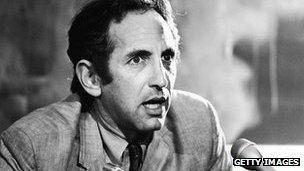
Daniel Ellsberg is one of America's most famous whistleblowers
Daniel Ellsberg was a military analyst who leaked the Pentagon Papers on the Vietnam war in 1971.
The papers contained a secret study by the US Department of Defense of US involvement in Vietnam, showing that the government had knowledge, early on, that it was unlikely the war could be won, and that continuing it would merely lead to more casualties.
The papers, the publication of which the Richard Nixon administration tried to stop, also revealed that the previous Lyndon Johnson administration had lied to Congress and the American people about the state of US involvement in Vietnam.
Ellsberg sent portions of the report to the New York Times and other newspapers, which published the papers.
Watergate

Carl Bernstein and Bob Woodward revealed the full extent of the Watergate cover-up
Perhaps the most significant leak in US history came with the Watergate affair, and the supply of information by "Deep Throat" - later revealed to be FBI Deputy Director Mark Felt - to US reporters Bob Woodward and Carl Bernstein of the Washington Post.
The affair began in 1972 with the arrest of five people after a break-in at the Democrat National Committee HQ at the Watergate complex in Washington DC.
The FBI connected the burglars to then President Nixon's re-election campaign, and a US senate committee was convened in 1973 to look into the circumstances of the robbery.
The investigation by the two journalists revealed the full extent of the cover-up over the burglary which eventually led to Nixon's resignation in 1974. He stepped down rather than face impeachment and possible conviction over what he knew about the scandal.
Iran-Contra affair
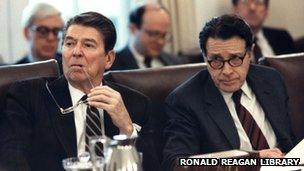
Ronald Reagan, with Secretary of Defense Caspar Weinberger, was at the heart of the Iran-Contra affair
Mehdi Hashemi was an Iranian Shia cleric who in 1986 revealed the Iran-Contra affair in which the US, under the presidency of Ronald Reagan, sold arms illegally to Iran, with the help of Israel - despite an arms embargo and despite the fact that the US still supported Iraq in their war against Iran.
The proceeds from the sales were used to help the Contra guerrillas fighting against the left-wing Sandinista revolutionary government in Nicaragua.
Hashemi was executed in 1987 by the Iranian government.
Valerie Plame
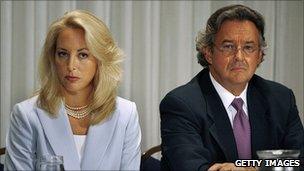
The Valerie Plame leak was said to be in revenge against her husband, Joseph Wilson
In 2003, journalist Robert Novak reported that Valerie Plame, the wife of prominent US diplomat Joseph Wilson, was in fact an undercover CIA agent, ending her career as a covert operative and leading to her resignation from the intelligence agency.
The revelation sparked an investigation into how the information had made its way to Mr Novak.
It was alleged by critics that senior White House aides had revealed the information as revenge against Ms Plame's husband for an article in which he debunked some of the justification for invading Iraq.
White House aide Lewis "Scooter" Libby was subsequently found guilty of lying to the FBI by a grand jury and sentenced to 30 months in prison. He avoided actually going to jail as his sentence was commuted by President George W Bush.
Abu Ghraib
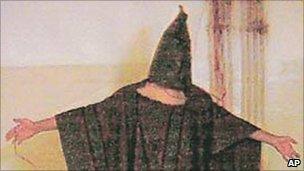
The Abu Ghraib pictures were front-page news around the world
The allegations of abuse of detainees by US personnel at Iraq's Abu Ghraib prison had been reported in the media at the beginning of 2004.
But it was only when the photos of the ill-treatment of prisoners were supplied to the 60 Minutes current affairs programme and to investigative journalist Seymour Hersh that the abuse turned into a full-blown military scandal.
The pictures showed naked prisoners being sexually humiliated and physically abused, and they made front-page news around the world. Eleven US soldiers were convicted of abusing prisoners.
The scandal also highlighted the death of detainee Manadel al-Jamadi while being interrogated in US custody.
Bradley Manning
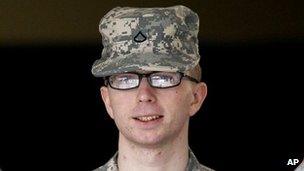
Bradley Manning is said to be behind the largest-ever leak of secret US government documents
As an intelligence analyst in the US army, Pte Bradley Manning was given access to a large amount of highly sensitive information, and is said to be behind the largest-ever leak of secret US government documents.
He has been charged with several offences relating to stealing secret information, and his military trial has been under way since early June.
Among the thousands of documents he is accused of handing over to Wikileaks is the video footage of an Apache helicopter killing 12 civilians in Baghdad in 2007.
Pte Manning is said to have become frustrated with a military career that appeared to be stagnating, and downloaded thousands of classified documents from military servers.
He has not denied his role in the leak, and faces up to life in prison if convicted of aiding the enemy.
Earlier this year, Pte Manning pleaded guilty to 10 of the 22 charges against him related to the leaks, but not to the most serious charge.
- Published16 December 2013
- Published7 June 2013
- Published8 June 2013
- Published6 June 2013
- Published7 June 2013